Discover Cooperative Journal
Cooperative Journal

40 Episodes
Reverse
Established in 1972, A.I.R is the first artist cooperative gallery for women in the United States. They maintain an exhibition space in Brooklyn, NY and showcase the work of hundreds of women artists each year. They also offer ways for members to build a support network and engage with the community through public open calls, fellowships, workshops, lectures on feminism, and discussion groups. Their multi-media exhibitions have explored themes of identity politics, historical archives, fractals, the symbiotic relationship between our body and environment, and so much more.In this episode I speak with member Susan Stainman about how A.I.R has cultivated a space for women artists to be fully autonomous and given a platform in a male dominated industry. We speak about the history of female oppression in the United States, the lack of representation of women in the art world, benefits of membership like retaining majority of sales and camaraderie, how artist cooperatives can shift the centralization of wealth in the art industry that’s worth more than transportation and agriculture, and more wisdom.A.I.R WebsiteA.I.R InstagramA.I.R FacebookWant to support Cooperative Journal?Share your gifts with us on Open Collective Foundation
Manyverse is an open-source, decentralized social network. Rather than a company controlling data and communication, the user has complete ownership and responsibility. Their goal is to make social networking independent of internet connectivity, allowing for “off the grid” communication when disconnected from the internet. In this episode I speak with founder Andre Staltz about transforming social networks into a method of communication and community, not a business. He shares why the interweb is dying, what it means to decolonize and demonetize social networking, dissolving hierarchy in social media platforms, how they receive financial support, and a new vision for the world wide web.Manyverse WebsiteOpen Collective Foundation pageLearn About Local-first Software Next Generation Internet - European Union GrantWant to support Cooperative Journal?Share your gifts with us on Open Collective Foundation
Tariq El Nahl translates from Arabic to Way of the Bees. They are an herbal collective based in Lebanon that formed after the explosion in the capital of Beirut in 2020. Lebanon has been compounded with crises in the past 50 years - from a civil war, to a financial crisis, and most recently the explosion left 300,000 people homeless and a government collapsed. When faced with trauma, broken infrastructure, and governmental systems that fail to meet our needs, how do we heal and progress? Tariq El Nahl is answering this question through fully embodying and bringing people back to their essence - Mother Earth.In this episode, I speak with Paul Saad, one of the members of the collective.. He poetically shares how they are utilizing land–based practices for reclaiming, highlighting, and accessing ancestral knowledge including creating native botanical gardens, delivering handmade baskets filled with herbal medicine from the land, herbal medicine toolkits as well as how they are raising money to fulfill these needs, and suggestions for finding light and grounding amidst darkness. Herbal GuidebookMini-doc on Tariq El NahlTariq El Nahl InstagramWant to support Cooperative Journal?Share your gifts with us on Open Collective Foundation
In this special 1 year anniversary episode, Cooperative Journal's host - Ebony Joy finally opens up to share their personal story.I explain what inspired me to start this form of storytelling, why I've shifted from the language of "alternative economics", expanding into a multimedia/multi-sensory platform, and why this is an opportune times for collectivized economic solutions.My friend/collaborator Robin also joins me in the later half of the episode to share a bit about themself. They've been central in the recent reinvisioining process and is the visual strategist/artist at Cooperative Journal Media.Cooperative Journal Media: Media platform that the podcast is now under the umbrella ofAnticapitalism for Artists: A platform for artists interested in anti-capitalismCreative Wildfire: Group of artists Robin and I joined to make art about "not going back to normal"Want to support Cooperative Journal?Share your gifts with us on Open Collective Foundation
Solidarity Economy Shorts Episode #7A collaboration with New Economy CoalitionSolidarity Economy Shorts are conversations with frontline organizations & individuals that are putting solidarity economy principles into practice. They are using different strategies to build an economic system where communities are meeting their own needs outside of capitalism. Cooperate Western North Carolina weaves cooperative economics and ecological design to nurture a regional-scale mutual aid network to meet community’s basic needs with trust at the foundation. In this episode I speak with the founder Zev Friedman. We discuss the relationship between regeneration in natural and human cooperative ecosystems, how they are practicing regional mutual aid through models like bulk purchasing and savings pools, conflict as an opportunity transformation, finding the balance between relational trust building and practical work, and tools for shifting from individualism to a collective way of life.Show NotesCooperate WNCWNC Food Coalition: Regenerative food system coalition in Western North CarolinaAsheville Nuttery: Cooperatively run nut processing facility in Asheville, NCCommunity Purchasing Alliance: A network of local cooperatives that leverage the buying power of community institutions through bulk purchasing in Washington D.C.Silver Run Forest Farm: Co-founder Jonathan McRay teaches organizers about the process of conflict systemsTransformative Justice Collective: Community group based out of Oakland, CA working to build and support transformative justice responses to harm and violence
Solidarity Economy Shorts Episode #6A collaboration with New Economy CoalitionSolidarity Economy Shorts are conversations with frontline organizations & individuals that are putting solidarity economy principles into practice. They are using different strategies to build an economic system where communities are meeting their own needs outside of capitalism. Beloved Community Incubator is a solidarity economy movement organization, cooperative incubator, non-extractive lender, and worker self-directed non-profit. They focus on building a regional solidarity economy in Washington D.C., Maryland, and Virginia that centers people, especially poor and working-class workers and people of color, over profit. In this episode I speak with co-director Bianca Vazquez and community researcher Askalu Habtom. We discuss how Beloved Community Incubator started as a hyperlocal initiative and evolved into regional solidarity economy organizing, the difference between traditional lending and non-extractive loans, challenges and effective tools in collective organizing, how participatory action research influences their work, and actionable steps for navigating times of uncertainty. Show NotesBeloved Community IncubatorSeed Commons: cooperative network for non-extractive financeDulce Hogar Cleaning Co-opSolidarity Research Center: builds solidarity economy ecosystems using data science, story-based strategy, and action research
Solidarity Economy Shorts Episode #5A collaboration with New Economy CoalitionSolidarity Economy Shorts are conversations with frontline organizations & individuals that are putting solidarity economy principles into practice. They are using different strategies to build an economic system where communities are meeting their own needs outside of capitalism. Creative Wildfire supports artists and grassroots organizations to create art that fuels our movements and imagines the world we need to thrive. This cultural organizing project is an embodiment of the strength of coalitions to resource the wider web. Three powerhouse organizations in the movement for a Just Transition and the Solidarity Economy pooled their budgets to redistribute to artists - Movement Generation, Climate Justice Alliance, and New Economy Coalition. In 2023-2024, Creative Wildfire convened a 10 month cohort that prioritized deeper relationship building, co-creation with a partner organization, and political education. 7 incredible artists and 7 organizations were selected to explore what's possible when we shift from transaction to collaborative liberation. In this episode Ebony speaks with Lizzie Suarez and Lily Xie, two of the most recent Creative Wildfire grantees. We talk about their roles as artist and cultural organizers, challenges that arise when collaborating with organizations, what can symbiosis look like when artists and orgs co-create, the value artists bring beyond being producers, and the cultural shifts needed to have a just transition in the arts.Show NotesNew Economy CoalitionCreative WildfireLily Xie WebsiteLizzie Suarez WebsiteLook Loud: visual strategy accomplices, supporting communities taking control of their own media narrativesBuilding Irresistible Movements: Best collaboration practices for organizations and visual artistsPedagogy of the Oppressed book by Paulo FreireCreative Study ‘Creatives Rebuild Guaranteed Income’: A free course about the three year guaranteed income initiative for artists in NYCCartoonist CooperativeEpisode Music by MADlines
Solidarity Economy Shorts Episode #4A collaboration with New Economy CoalitionSolidarity Economy Shorts are conversations with frontline organizations & individuals that are putting solidarity economy principles into practice. They are using different strategies to build an economic system where communities are meeting their own needs outside of capitalism. The Black Solidarity Economy Fund (BSEF) was created by the New Economy Coalition to resource, convene, and uplift the work of the Black Solidarity Economy movement. The fund is managed by their member-led working group that has the autonomy to make decisions about who receives the grant and how much is awarded. Since 2020, they have redistributed $730,000 to Black solidarity economy groups across the nation. In this episode, Ebony speaks with former grantees and members of the working group, Erin Backus from the Maternal Health Equity Collaborative and Georie Bryant from Symbodied. They share about their solidarity economy organizing in maternal healthcare and agriculture as well as the ancestral wisdom that informs their work. They talk about the collective regranting process and how it felt to shift from grantee to grantmaker. We also delve into the current barriers to weaving a Black solidarity economy network, the future they envision for a robust Black solidarity economy, and some practical ways to activate this vision.Before the interview begins, Shardé Nabors, the Resource Redistribution Director at New Economy Coalition, grounds us in defining the solidarity economy, what BSEF is, the intention for starting it, and their plans for growth and expansion. Show NotesBlack Solidarity Economy FundMaternal Health Equity Collaborative SymbodiedEpisode Music by MADlines
Solidarity Economy Shorts Episode #3A collaboration with New Economy CoalitionSolidarity Economy Shorts are conversations with frontline organizations & individuals that are putting solidarity economy principles into practice. They are using different strategies to build an economic system where communities are meeting their own needs outside of capitalism. Sol Underground is an abolitionist ecosystem in Atlanta dreaming of a Black and Indigenous liberated world that is resisting colonial systems of oppression. They are actualizing this dream as an autonomous community-led group that is building, joining, and maintaining networks of care. In this episode, Ebony speaks with the founder Sunny who begins with defining what abolitionism is and its correlation to the solidarity economy. How their shape transformed from an artist collective to supporting the unhoused community through mutual aid. They share some of the models they organize like Sol Below, a pop up tent that provides warmth and food to the homeless when the temperature drops below a certain degree. They paint a beautiful vision for a world when exploitative systems are abolished, offer practical tips for adopting an abolitionist mindset, and how to put theory into practice. Show NotesSol Underground Freedom Archives: dedicated to the preservation and dissemination of historical audio, video, and print materials documenting progressive movements and culture from the 1960s to the 1990s. Abolition Notes: a free and evolving, volunteer-run education project to make the work of radical and revolutionary movements throughout history fighting for liberation more accessible New Economy Coalition Episode Music by MADlines
Solidarity Economy Shorts are conversations with frontline organizations & individuals that are putting solidarity economy principles into practice. They are using different strategies to build an economic system where communities are meeting their own needs outside of capitalism.
Co-op Dayton is developing and weaving a network between cooperative businesses that are meeting the needs of their local community. They are using community and worker ownership as a catalyst to transform Dayton’s Black and working class neighborhoods. In this episode, Ebony speaks with program and co-executive directors - Cherelle Gardner and Amaha Sellassie.
They begin with defining what a cooperative is and different ownership structures, how cooperative businesses can meet the needs of a disinvested post-industrial city, some of the models they have incubated like T.R.I.B.E a shared-service co-op of holistic perinatal practitioners. They also invite us to think beyond the metrics of success within capitalism, what solidarity and cooperation looks like in our day to day lives, and how we can show up in solidarity.
Show Notes
Co-op Dayton
National Black Food Justice Alliance
PODER Emma: provides technical assistance, accompaniment, and lending for the development and sustainability of worker-owned businesses, resident-owned mobile home parks, and community-based real estate investment cooperatives.
Seed Commons: national network of locally-rooted, non-extractive loan funds that brings the power of big finance under community control.
Economics for Emancipation: free course with interactive and participatory workshops that offers a deep dive into the current political economic system and explores alternative economic systems.
Episode Music by MADlines
Solidarity Economy Shorts Episode #1
A collaboration with New Economy Coalition
Solidarity Economy Shorts are conversations with frontline organizations & individuals that are putting solidarity economy principles into practice. They are using different strategies to build an economic system where communities are meeting their own needs outside of capitalism.
Nuns and Nones is a community of sisters and seekers connect to explore the themes of justice, spiritual practice, and how to respond to the needs of the times. The Land Justice Project evolved to support these religious communities to reimagine and shift who has ownership and access to the land they are on. In this episode Ebony speaks with Brittany Koteles, the director of the project.
Brittany begins with laying a foundation for what land justice is and how the Land Justice Project embodies it through its models and practices. She shares when and why land became commodified, how the aging community of nuns is navigating the mistrust and contradictions that emerge when giving Catholic owned land to Native American and Black people, and ways you can engage in land justice.
Show Notes:
New Economy Coalition
Nuns & Nones
Sustainable Economies Law Center
Agrarian Commons: model of land stewardship and access that allows for community ownership of farmland
Center for Ethical Land Transition: explores ways to decommodify, rematriate, and increase accessibility to land for BIPOC communities
Guilded is a cooperative that offers resources to empower freelance workers. They provide contract management, invoicing, guaranteed payments, tax preparation, and health care – which alleviates some of the administrative work so that freelancers can focus on their projects. One of their main intentions is supporting artists as workers and ensuring their basic needs are met.In this episode, I speak with Camila Tapia-Guilliams, a mixed media artist, educator, and community organizer, weaving together narratives of identity, community care, cooperation, and solidarity in their art.We talk about the gaps Guilded is filling for freelancer artists like ensuring they get paid on time, unions as a tool for protecting artists as workers, navigating decisions in a multi-stakeholder co-op, the process of joining Guilded and the benefits included, and visions for a world where artists are honored for the value they create.Show Notes:Guilded Website Camila's InstagramU.S. Federation of Worker Co-ops
What would it look like if we collectively designed decentralized, democratized, distributed, and diversified energy systems? People Power Solar is a California based cooperative that invests in community-led projects to create alternatives to PG&E and other private utilities. They are working to ensure that power can be accessed by all without compromising the health and safety of any community. I speak with worker-owners Hannah and Crystal about the necessity to transition from privatized energy to localized and cooperative structures. They share some community led projects they support like mobile solar power, framing energy as a verb, how they are shifting from focusing on pooling financial resources to deepening in relationships and dialogue around what energy really is, and why our dominant energy sector is inefficient, overpriced, and unreliable.Show Notes:People Power Solar WebsitePeople Power Solar YoutubePodcast episode that inspired framing energy as a verb
Post Growth Institute experiments with tangible practices, tools, and spaces to create a regenerative, full-circle economy beyond capitalism. Through their research, structure, and offerings they embody the ‘Post-growth’ worldview, which sees society operating better without the demand of constant economic growth. It resists an economy that is predicated on growth and depends on the over extraction of finite natural resources and human labor…instead we can create systems that put people and the planet over profit.I speak with Director of Education Crystal Arnold about mutual aid through the Offers and Needs Market, a space for community members to exchange their passions, knowledge, skills, resources, opportunities, and needs. She shares practices and ideology we need to evolve into a post-growth society, sliding scale vs. open ended pricing, dissolving class differences in the Offers and Needs Market, advice for being in reciprocity daily, the importance of facilitation skills to create spaces of belonging, asset based mapping as a tool for community resilience, and more!ResourcesOffers & Needs MarketsPost Growth Institute WebsiteHost Your Own Free Money DayTools for Asset Based Community MappingCrystal’s Podcast: Money Morphosis
Mumbet’s Freedom Farm is a Black and Brown-led cooperative farm located at the base of a mountain in Sheffield, Massachusetts. It is a community sanctuary for connection, creativity, education, and wellness. The name is in reverence to Elizabeth ‘Mumbet’ Freeman, who was an enslaved African nurse, midwife, and herbalist who sued for her freedom in Sheffield and won. The land is abundant with a flowing brook, natural spring, waterfalls, forest trails, and a diversity of natural life.In this episode I speak with worker-owner DeeArah Wright about their journey from the city towards collective rural land stewardship. We talk about the power of the land to heal trauma associated with Black land history, barriers they experienced when trying to purchase land, how they got into a mutual benefit, non-extractive land agreement, food and land as a source of liberation, benefits and challenges of cooperative farming, establishing local relationships to build financial security and community, holding space on the land for art, education, and play, their plans to create an ecosystem of homesteads and sanctuaries cooperatively owned, managed by Black, Indigenous, and People Of Color.Connect with Mumbet's Freedom FarmWebsite Instagram
Okionu Birth Foundation offers free personalized meals and group mental health support for low-income BIPOC families during the first six weeks after their baby is born. They collaborate with chefs and the Therapist of Color Collective to provide care in Colorado, Maryland, and Texas. While their free services are currently limited, they are developing an app for a nationwide support network. In this episode I speak with founder Jacquelyn Clemmons about how they are prioritizing the mental health and overall wellbeing of BIPOC newborns and their parents. She shares their offerings for holistic and culturally relevant care, food as the foundation for wellbeing, Black maternal health disparities and how they are combating that through their partnership with Irth app (honors the voices of Black and brown woman giving them a platform to review prenatal, birthing, postpartum and pediatric care received from doctors and hospitals), negative effects lack of care has on child development, and stay tuned until the end to go on a multisensory journey into the future of Okionu birth centers.Okionu Birth Foundation WebsiteOkionu InstagramIrth AppSupport Okionu on Open Collective FoundationWant to support Cooperative Journal?Share your gifts with us on Open Collective Foundation
Understory is a worker-led restaurant, bar, and incubation kitchen in Oakland, CA. In collaboration with Oakland Bloom, they center immigrant, working class, and people of color chefs through pathways to worker-leadership, project support and training, and economic opportunities. It is more than just a restaurant, they offer a platter of ways to physically and socially nourish the community in a co-creative way. You can experience the roots of the workers through their rotating menu of Filipino, Moroccan, and Mexican cuisine, check out local art, attend a dance party, or support an immigrant or refugee chef at their weekly pop-up.In this episode I speak with one of the chefs Florencio Esquivel about how Understory is shifting the narrative of who receives support and amplification in the restaurant industry. They share how the pandemic influenced the restaurant’s formation, process of assuming responsibilities and navigating decision making, impact and intention of their worker emergency fund, importance of preserving indegenous recipes, and their vision for a changed restaurant world that is horizontally structured while honoring the diversity of workers and their lineage.ResourcesUnderstory’s InstagramUnderstory’s WebsiteWahpepah’s Kitchen (Kickapoo Tribe Restaurant in Oakland)
Play Cousins Collective is a Black centered family care network based in Louisville, Kentucky. They are building multi-generational and inter-sectional Black spaces and community resources rooted in ancestral methods of healing and resistance. Through offering programs at every stage of development, from in utero to adult they are able to foster a supported and resilient community.In this episode I speak with executive director Kristen Williams about the significance of building a village amongst the African-American community. She shares how they started with mapping out all of the Black businesses and practitioners in their community, voids children of color experience in educational institutions and communities, tools they are utilizing to affirm Black power and beauty from a young age, decolonization of mentality and practices, the multitude of programs they offer to all ages, membership structure, how they navigate generational trauma and healing, and more! WebsiteInstagramFacebookPost Traumatic Slave Syndrome by Dr. Joy DeGruyWant to support Cooperative Journal?Share your gifts with us on Open Collective Foundation
East Bay Permanent Real Estate Cooperative is based in the East Bay of California. They facilitate BIPOC and allied communities to cooperatively organize, finance, purchase, occupy, and steward properties, taking them permanently off the market. Residents, investors, community members, and EB PREC staff then co-own and co-steward the property. It creates a shift toward community controlled assets, and empowering their communities to be ecologically, emotionally, spiritually, culturally, and economically restorative and regenerative.
In this episode, I speak with executive director Noni Session about how EB PREC is garnering support to shift real estate ownership from extractive developers into the hands of the BIPOC community in Oakland and the East Bay. She shares the difference between a permanent real estate co-op and land trust, ancestral remembrance of cooperative ownership, how they got the first group of people to invest, their governance structure and multi-stakeholder model, prioritizing inclusivity and accessibility to individual investors, transparency of investment risks and how they mitigate it, and their exciting new venture - a historic Black arts svenue they’ve acquired for Black artists and small businesses at 50% of market rate.
Document detailing their direct public offering: https://ebprec.org/offering
Esthers Orbit Room - mixed-use Black cultural venue: https://ebprec.org/esthers
Collective Courage: A History of African American Cooperatives East Bay Permanent Real Estate Cooperative is based in the East Bay of California. They facilitate BIPOC and allied communities to cooperatively organize, finance, purchase, occupy, and steward properties, taking them permanently off the market. Residents, investors, community members, and EB PREC staff then co-own and co-steward the property. It creates a shift toward community controlled assets, and empowering their communities to be ecologically, emotionally, spiritually, culturally, and economically restorative and regenerative.
In this episode, I speak with executive director Noni Session about how EB PREC is garnering support to shift real estate ownership from extractive developers into the hands of the BIPOC community in Oakland and the East Bay. She shares the difference between a permanent real estate co-op and land trust, ancestral remembrance of cooperative ownership, how they got the first group of people to invest, their governance structure and multi-stakeholder model, prioritizing inclusivity and accessibility to individual investors, transparency of investment risks and how they mitigate it, and their exciting new venture - a historic Black arts svenue they’ve acquired for Black artists and small businesses at 50% of market rate.
Document detailing their direct public offering: https://ebprec.org/offering
Esthers Orbit Room - mixed-use Black cultural venue: https://ebprec.org/esthers
Collective Courage: A History of African American Cooperatives https://www.psupress.org/books/titles/978-0-271-06216-7.html
St. Louis Mutual Aid is based in St. Louis, MO. They are a network of organizers, healers, artists, community leaders, and every day people coming together to deliver food and supplies, provide financial solidarity, offer emotional support, and ultimately connect people to their neighbors.In this episode I speak with members Marcus Hunt, Julia Ho, and Carmen Ward about how STL Mutual Aid has built a robust network of care in their community. In this episode we speak about how mutual aid can be used to introduce people to the solidarity economy, peer-2-peer learning between cooperatives and mutual aid initiatives, taking a holistic approach to fulfilling needs, resources of support offered including their no strings attached financial solidarity fund, how to make the distinction between mutual aid and charity, and more.St. Louis Mutual Aid WebsiteSt. Louis Mutual Aid InstagramSolidarity Economy St. Louis


![[28] A.I.R: Artist-Run Cooperative Gallery [28] A.I.R: Artist-Run Cooperative Gallery](https://media.redcircle.com/images/2022/3/25/2/25586db5-eb14-4477-9ac5-9b00388162b5_283e5eb0-fc62-4963-9936-dce8f1a47ccf_air-logo.jpg)
![[27] Manyverse: Decentralized Social Network [27] Manyverse: Decentralized Social Network](https://media.redcircle.com/images/2022/3/25/2/b5642cd4-bbbe-412b-925a-e19111f43ab3_87b-8e33-289094608b6f_manyverse_logo_1400x1400.jpg)
![[26] Tariq El Nahl: Herbal Collective [26] Tariq El Nahl: Herbal Collective](https://s3.castbox.fm/b9/5b/74/d98f34ad61590625b9d3f0c0b369285b16_scaled_v1_400.jpg)
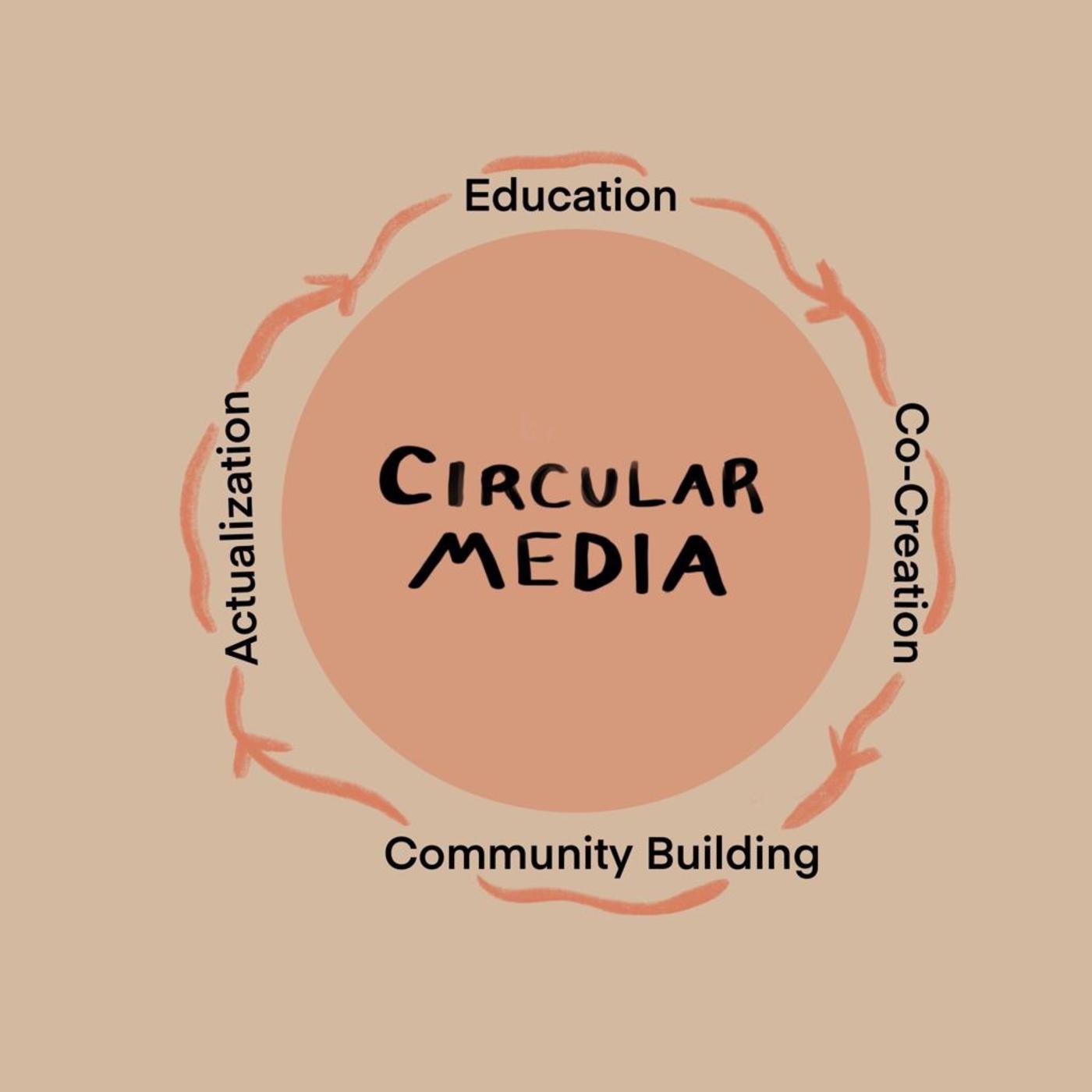

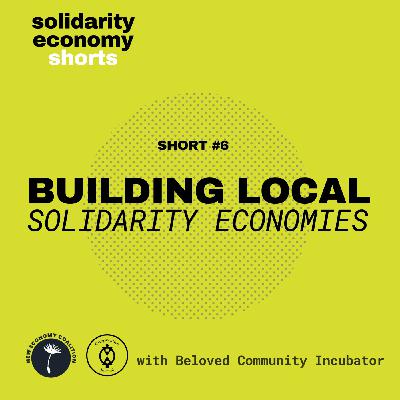
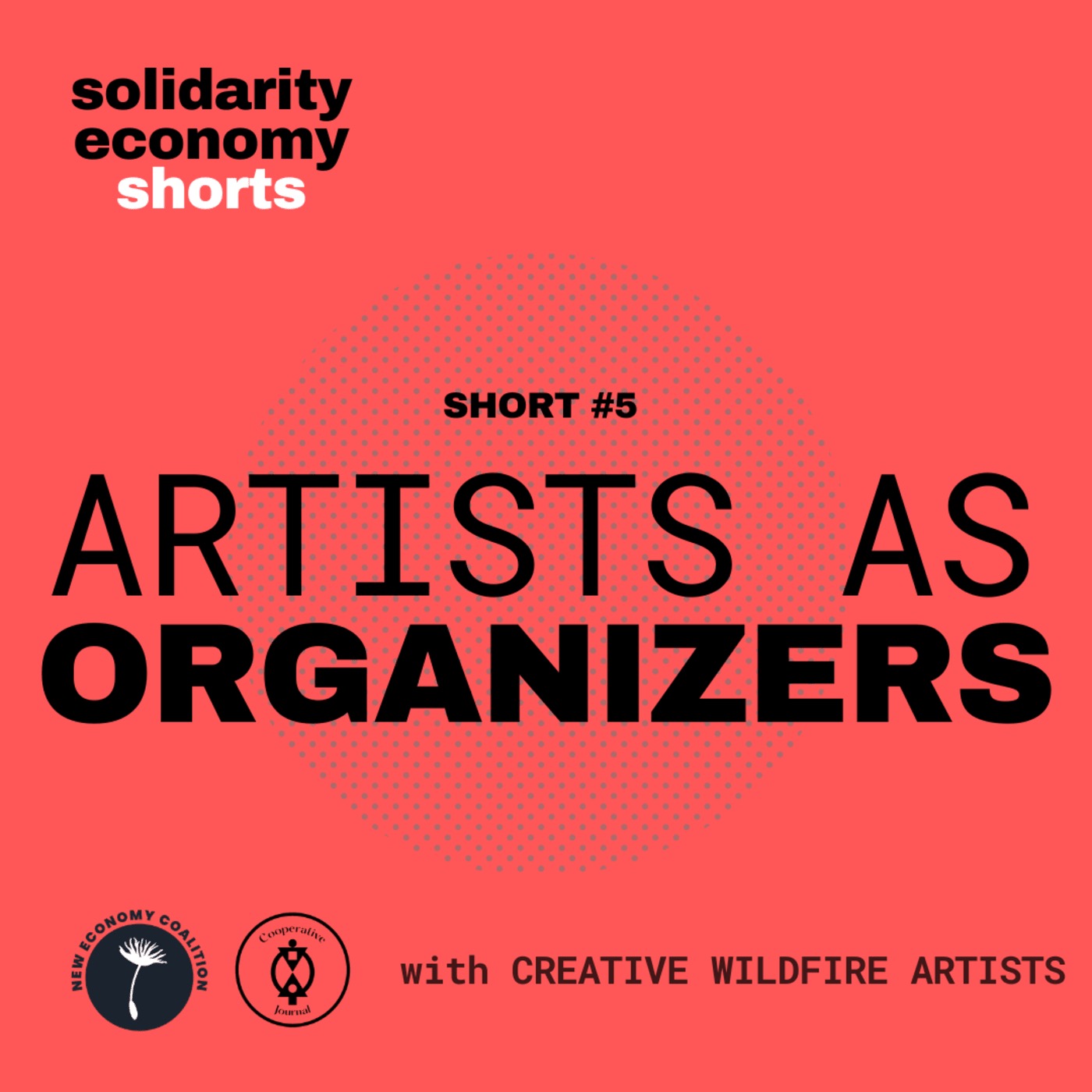

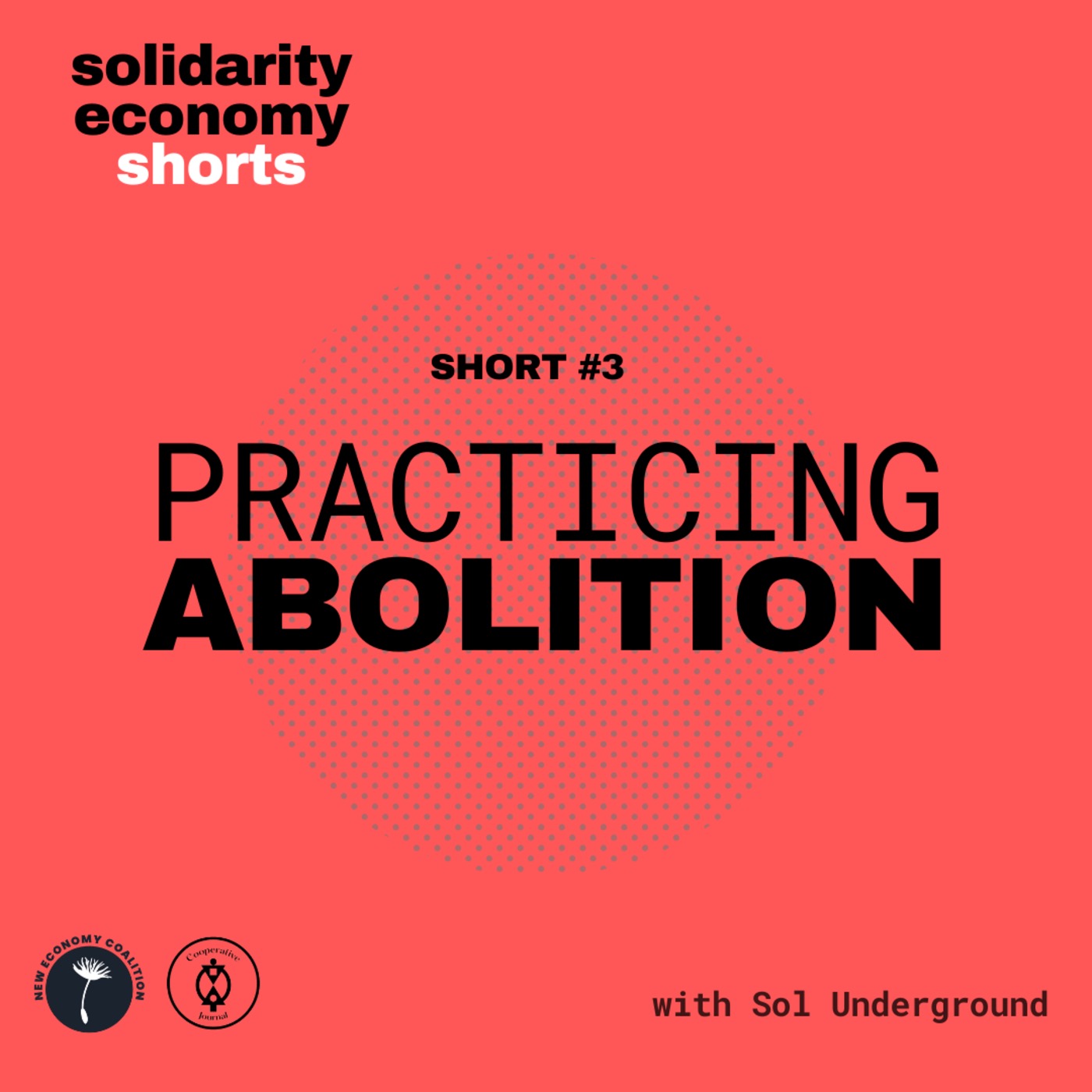
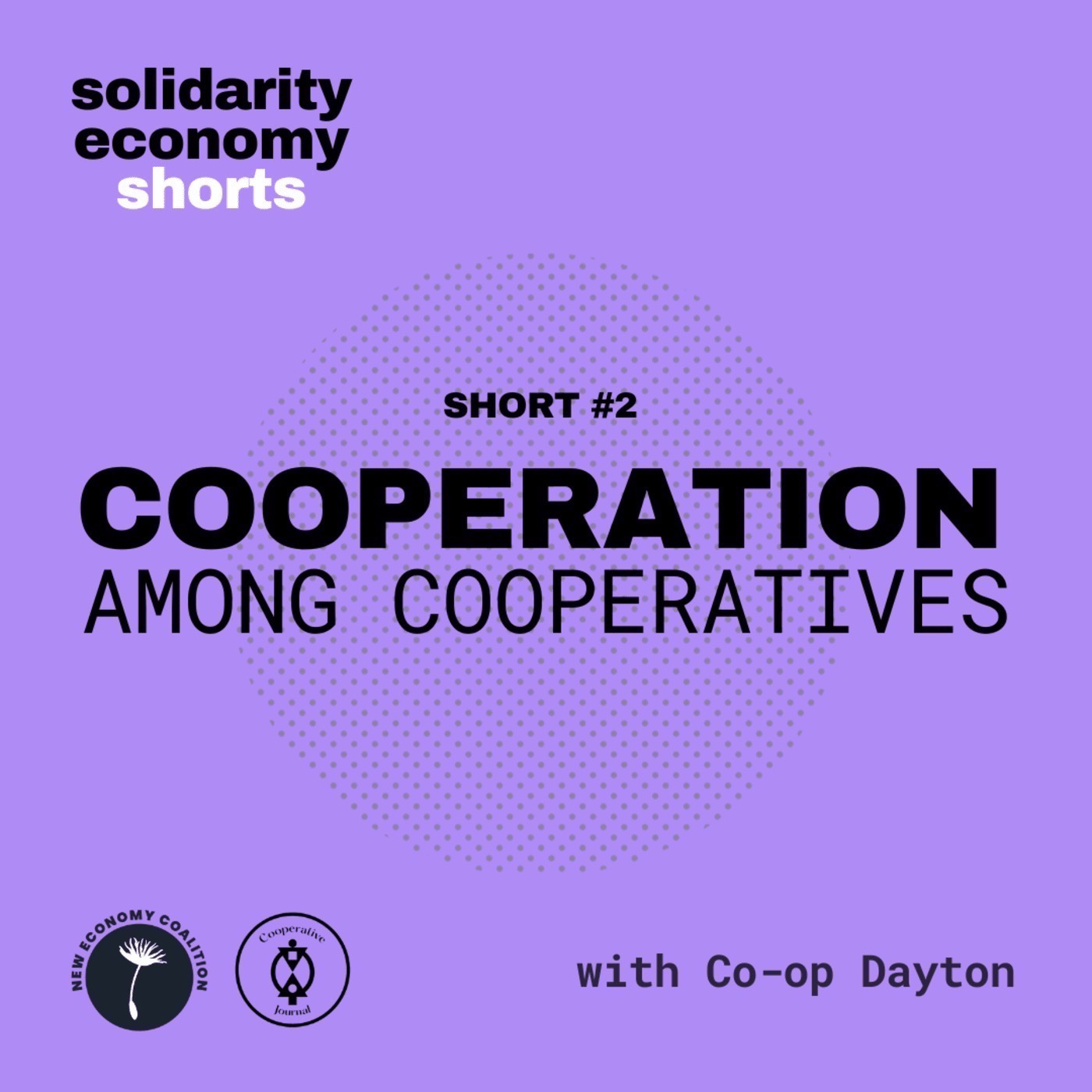
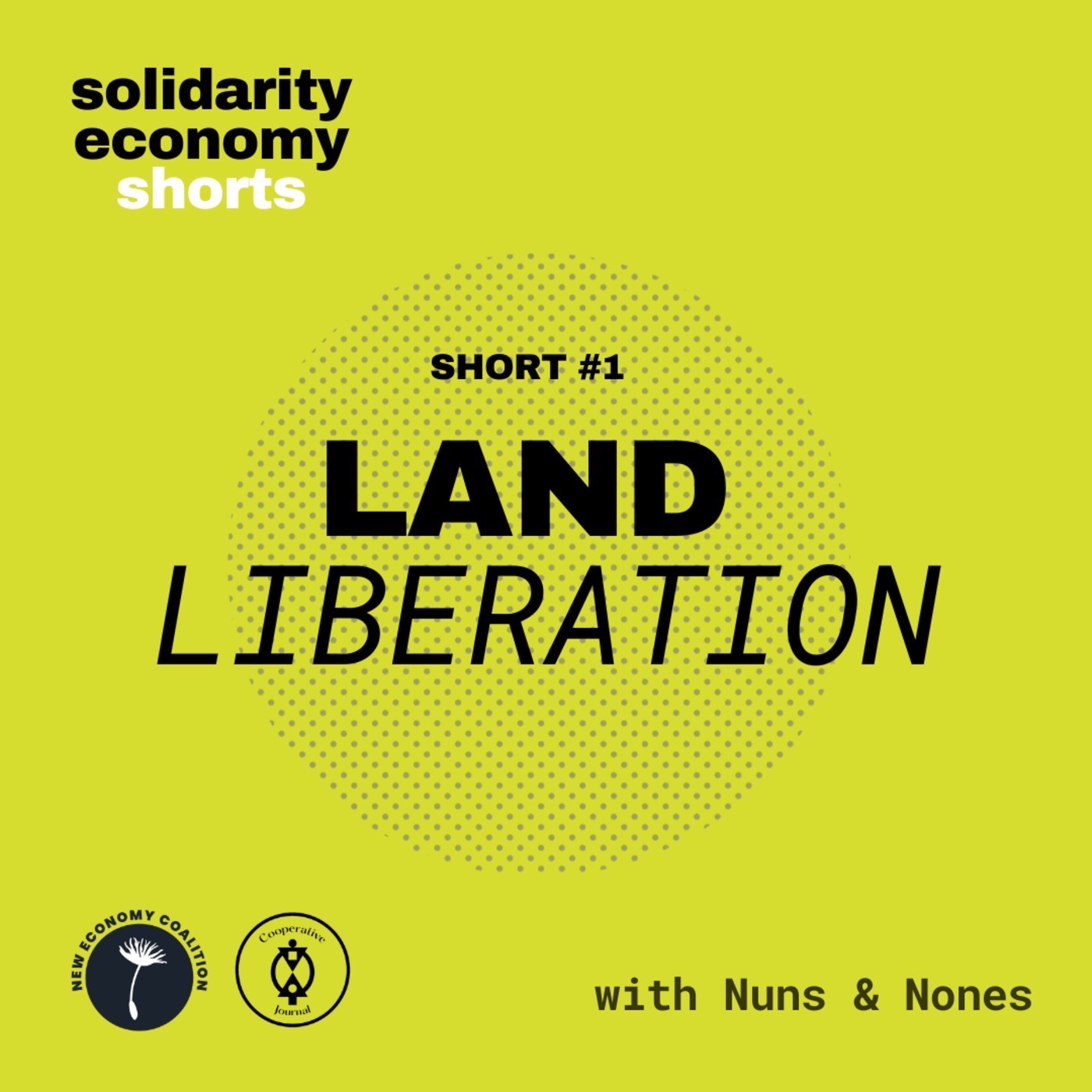
![[33] Guilded: Freelancer Cooperative [33] Guilded: Freelancer Cooperative](https://s3.castbox.fm/29/ca/52/361466215b5caa794104476819a493f26a_scaled_v1_400.jpg)
![[32] People Power Solar Co-op: Community-Owned Energy [32] People Power Solar Co-op: Community-Owned Energy](https://s3.castbox.fm/79/22/51/8b150dbd6449565555c92d0d3aea50dd74_scaled_v1_400.jpg)
![[31] Post Growth Institute: Offers & Needs Market [31] Post Growth Institute: Offers & Needs Market](https://s3.castbox.fm/6a/53/fa/ca7e7f23131d710f7813bc8a901b3725b2_scaled_v1_400.jpg)
![[30] Mumbet's Freedom Farm: Black/Brown Led Cooperative Farm [30] Mumbet's Freedom Farm: Black/Brown Led Cooperative Farm](https://s3.castbox.fm/a5/dd/c5/ddc3e9da0c99052ba20d44ed6ae03297ac_scaled_v1_400.jpg)
![[29] Okionu Birth Foundation: Free Postpartum Care [29] Okionu Birth Foundation: Free Postpartum Care](https://media.redcircle.com/images/2022/3/25/2/2cdd9de1-cc94-48c9-8165-40183afe76ee_okionu-logo.jpg)
![[24] Understory: Worker-led Restaurant [24] Understory: Worker-led Restaurant](https://s3.castbox.fm/6a/6b/85/ecc3bd78950d06152a95d193c378dbcd2d_scaled_v1_400.jpg)
![[23] Play Cousins Collective: Black Family Care Network [23] Play Cousins Collective: Black Family Care Network](https://s3.castbox.fm/6f/87/78/12ebd39aca50a468e3d00477280dabf62f_scaled_v1_400.jpg)
![[22] East Bay Permanent Real Estate Cooperative: Community Owned Real Estate [22] East Bay Permanent Real Estate Cooperative: Community Owned Real Estate](https://s3.castbox.fm/3e/42/91/0fa1fd99e939b4fdab35cfc11811aa9ec3_scaled_v1_400.jpg)
![[21] St. Louis Mutual Aid: Meeting Basic Needs Through Community [21] St. Louis Mutual Aid: Meeting Basic Needs Through Community](https://media.redcircle.com/images/2021/10/19/18/f3ae1b01-5c12-46ce-bdd9-18f11f297619_57e57f84_screen_shot_2021-10-06_at_11.49.07_am.jpg)


